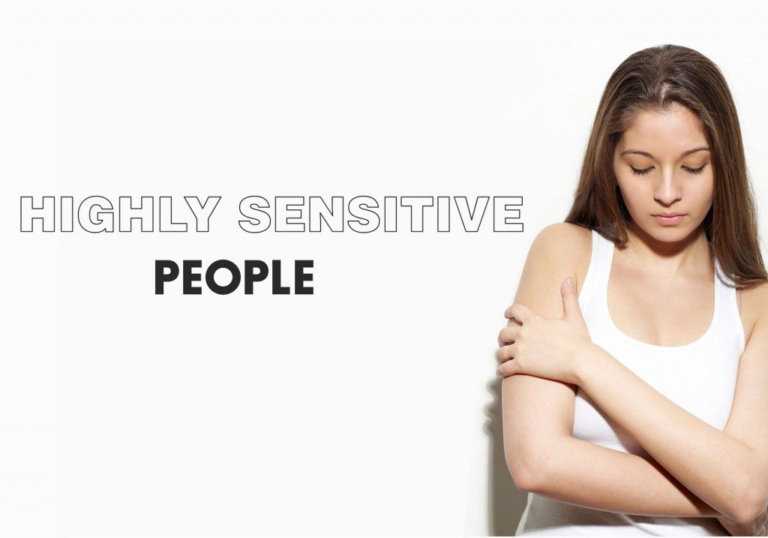HSP, or Highly Sensitive Person, refers to individuals who have a heightened sensitivity to external stimuli and emotional experiences.
This article explores the traits, characteristics, challenges, and coping strategies associated with being an HSP.
What is HSP
HSP stands for Highly Sensitive Person, a term coined by psychologist Dr. Elaine Aron in the 1990s.
It describes individuals who have a more sensitive nervous system, leading them to process sensory information more deeply and react more strongly to stimuli compared to others. It’s estimated that around 15-20% of the population may be HSPs.
Traits and Characteristics of HSP
People who identify as HSPs often exhibit the following traits:
Heightened Sensory Processing: HSPs are more sensitive to sensory stimuli such as noise, light, textures, and smells. They may become overwhelmed in loud or crowded environments.
Emotional Sensitivity: HSPs tend to feel emotions intensely. They may be deeply affected by other people’s moods or the emotional tone of their surroundings.
Empathy: HSPs often have a strong sense of empathy and can intuitively sense the emotions and needs of others.
Deep Processing: They process information more deeply and reflect on their experiences and surroundings.
Overstimulation: HSPs are more prone to feeling overwhelmed or overstimulated in busy or chaotic environments.
Challenges Faced by HSPs
Being an HSP comes with its challenges, including:
Sensory Overload: Easily overwhelmed by loud noises, bright lights, or strong smells.
Emotional Intensity: Feeling deeply affected by criticism, conflict, or emotional Exactly what is meant by “highly sensitive person” (HSP)?
Being a Highly Sensitive Person (HSP) refers to having a more sensitive nervous system, which leads individuals to process sensory information more deeply and react more strongly to stimuli compared to others. This trait is innate and affects how HSPs experience and interact with their environment.
situations
Social Anxiety: Preferring solitude or quiet environments due to sensitivity to social interactions and dynamics.
Perfectionism: Striving for perfection and being highly self-critical.
Coping Strategies for HSPs
To navigate daily life effectively, HSPs can employ various coping strategies:
Self-Awareness: Recognizing and understanding one’s sensitivity as a natural trait rather than a weakness.
Setting Boundaries: Learning to say no to overwhelming situations or commitments that can lead to overstimulation.
Creating a Supportive Environment: Surrounding oneself with supportive people who understand and respect one’s sensitivity.
Mindfulness: Practicing mindfulness techniques to stay grounded and manage emotional reactions effectively.
Seeking Professional Help: Consulting with a therapist or counselor who specializes in working with HSPs can provide additional support and strategies.
Misconceptions about HSPs
There are misconceptions surrounding HSPs, including:
Weakness: Sensitivity is often misunderstood as weakness, whereas it’s a natural trait that can come with strengths like empathy and creativity.
Introversion: While many HSPs are introverted due to their sensitivity, not all introverts are HSPs, and vice versa.
FAQs
What are the common traits of HSPs?
HSPs typically exhibit the following traits:
Emotional Reactivity: HSPs experience emotions intensely. They may be deeply affected by other people’s moods, emotional events, or subtle changes in their surroundings.
Empathy and Compassion: They have a strong capacity for empathy, often able to intuitively sense and understand the emotions of others.
Deep Processing: HSPs tend to process information deeply and reflect on their experiences and thoughts. They may appreciate art, nature, and aesthetic experiences deeply.
How common is being an HSP?
It is estimated that approximately 15-20% of the population may be highly sensitive. This trait is equally prevalent among men and women and can be found across different cultures and age groups.
What challenges do HSPs face?
HSPs face unique challenges due to their heightened sensitivity, including:
Sensory Overload: They may easily become overwhelmed in environments with loud noises, bright lights, or strong smells.
Emotional Intensity: HSPs can be deeply affected by criticism, conflict, or negative emotions, which may lead to stress and emotional exhaustion.
Social Anxiety: Some HSPs may experience discomfort in social situations, preferring quieter or less stimulating environments.
Perfectionism: Striving for perfection and being highly self-critical can contribute to stress and anxiety among HSPs.
Can HSPs be introverted?
While many HSPs may identify as introverts due to their preference for solitude or quieter environments, not all HSPs are introverted. Sensitivity and introversion are separate traits, and individuals can vary in their social preferences and behaviors.
How can HSPs cope with their sensitivity?
To manage their sensitivity effectively, HSPs can employ various coping strategies:
Self-Awareness: Recognizing and accepting their sensitivity as a natural trait rather than a weakness is crucial for self-acceptance.
Self-Care Practices: Prioritizing activities that promote relaxation and reduce stress, such as meditation, yoga, spending time in nature, or engaging in creative pursuits.
Setting Boundaries: Learning to say no to overwhelming situations or commitments to prevent overstimulation and burnout.
Seeking Support: Connecting with understanding friends, family members, or support groups where they can share experiences and receive validation can be beneficial.
Are there benefits to being an HSP?
Yes, being an HSP comes with strengths such as:
Heightened Empathy: Ability to understand and connect with others emotionally.
Creativity: Often associated with a rich inner world and creative expression.
Detail-Oriented: Noticing subtleties that others may overlook, which can be advantageous in various professions and personal relationships.
How can non-HSPs support HSPs?
Understanding and supporting HSPs involves:
Respect: Respecting their need for solitude or quiet time without judgment.
Listening: Providing a listening ear and validating their experiences and emotions.
Creating Comfortable Environments: Minimizing sensory stimuli when possible and offering support during stressful situations.
Highly Sensitive Person
Being a Highly Sensitive Person (HSP) is a natural and valid personality trait that affects how individuals perceive and interact with the world. By understanding the unique characteristics, challenges, and strengths associated with being an HSP, individuals can navigate their sensitivity more effectively.
Implementing self-awareness, self-care practices, and seeking support when needed can help HSPs thrive and embrace their sensitivity as a valuable aspect of their identity. As awareness grows, so does acceptance and accommodation for the needs of highly sensitive individuals in various aspects of society.
To read more, click here
